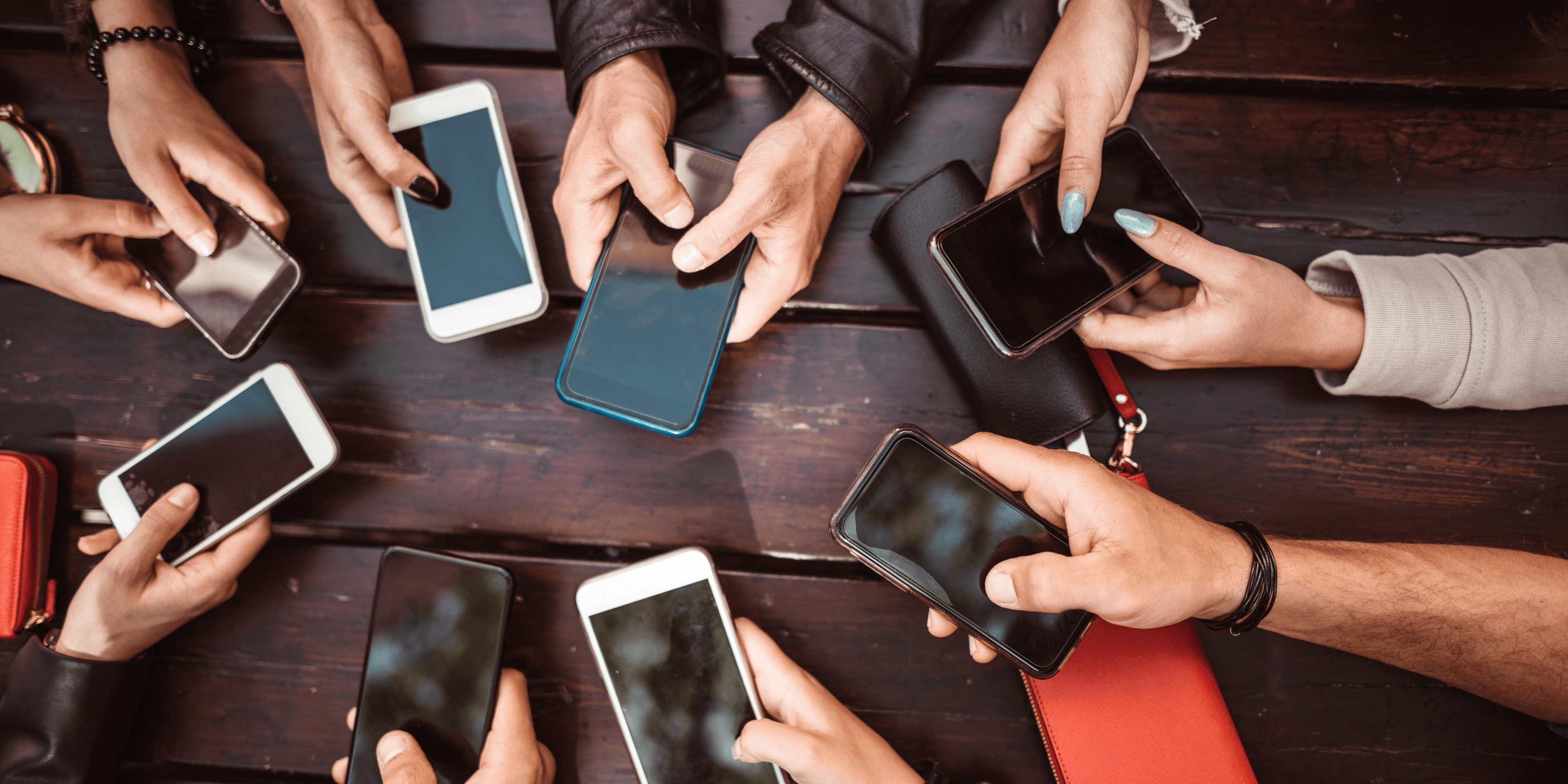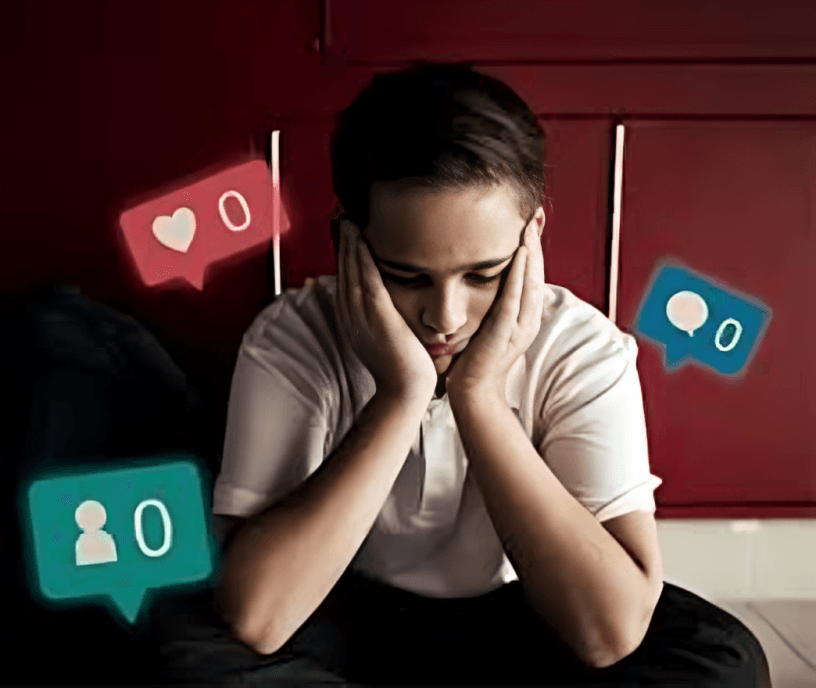
“
Understanding how social media addiction affects mental well-being is more important than ever. This silent habit can lead to stress, anxiety, and emotional exhaustion—changing how we feel, think, and interact in everyday life. Whether you're a casual user or constantly online, these insights reveal the true cost of staying connected 24/7.1
1
”
Constant comparison on social media can trigger feelings of sadness and anxiety, especially when users view idealized posts that make their own lives seem less interesting or successful. 1
Scrolling through social media late at night disrupts natural sleep cycles, making it harder for users to fall asleep and negatively impacting overall emotional and mental well-being. 2

Excessive use of social media lowers self-esteem, as people measure their value by likes, shares, or followers, creating dependence on external validation rather than inner confidence.
The pressure to stay updated with every notification causes mental fatigue, as users feel overwhelmed and constantly alert, leading to elevated stress and poor relaxation. 3
Addiction to social media replaces meaningful in-person relationships with superficial online interactions, increasing feelings of loneliness even when constantly connected to others digitally. 4
Users often feel distressed when posts don’t receive expected engagement, leading to emotional dependency on digital feedback for self-worth and happiness. 5
Social media can expose users to cyberbullying, which may severely damage mental health and lead to emotional trauma, depression, or isolation, especially in vulnerable individuals. 6
Fear of missing out grows when users see others enjoying events or successes, triggering anxiety and the compulsion to check updates obsessively to avoid feeling excluded. 7

Teens using social media excessively often show declining academic performance, as their focus shifts away from studies toward digital engagement and peer approval.
Repeated exposure to unrealistic beauty standards online may cause dissatisfaction with one’s appearance, contributing to negative body image and disordered eating patterns. 8
Platforms use algorithms to prolong engagement, which trains the brain to crave continuous updates, reinforcing compulsive behaviors similar to other recognized forms of addiction. 9
Younger users are especially vulnerable to the mental health effects of social media, as their emotional development is still forming and can be influenced easily by online content. 10
Repeated distractions from social media lower work and study efficiency, reducing motivation and delaying important tasks, which creates stress and guilt afterward. 11
Nonstop interaction with social media drains mental energy, often resulting in emotional burnout, where users feel numb, exhausted, or disconnected from real-life activities. 12

Excessive reliance on digital communication can hinder the growth of real-world conversation skills, making face-to-face social situations feel awkward or uncomfortable.
Social media distorts reality by showing only highlights, making users believe others are always happier, richer, or more successful, leading to dissatisfaction with their own lives. 13
Teens who overuse social media often avoid real-life events, fearing judgment, yet paradoxically become more anxious due to reduced offline social practice and interaction. 14
Time spent on social media reduces physical activity, which affects brain chemistry and contributes to lower mood, reduced focus, and increased symptoms of anxiety or depression. 15
Online anonymity can lead to harmful comments and emotional harm, especially when users experience negative interactions that stay with them long after logging off. 16
Social media overuse interrupts daily life, making it difficult for users to manage responsibilities, meet goals, or maintain healthy routines, leading to emotional and mental strain. 17


